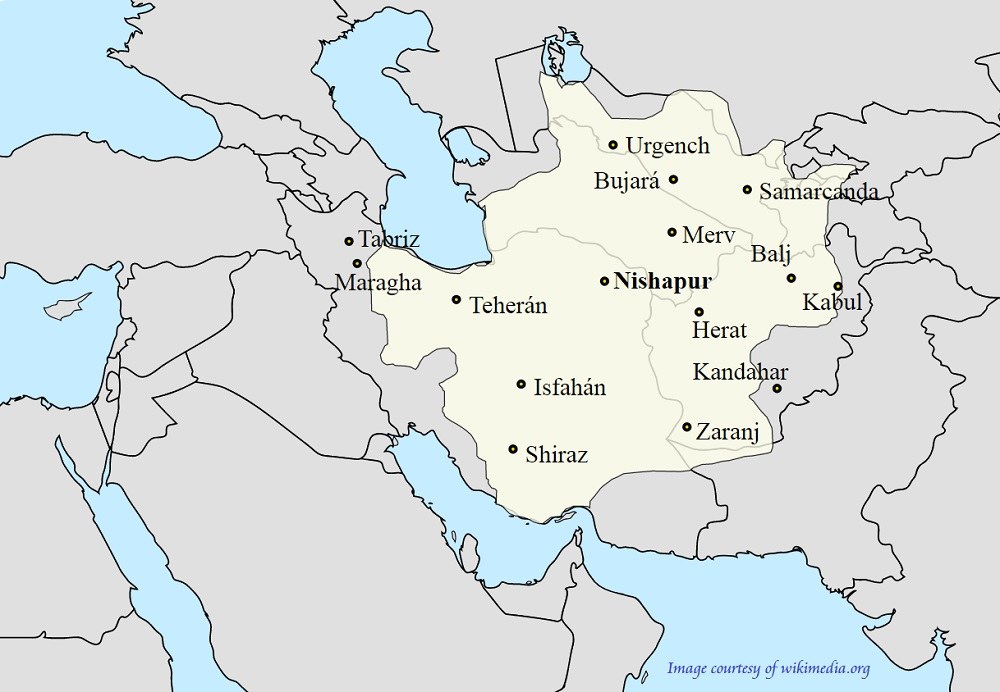
If you know the effects of jet lag and learn how to get prepared for it, you will be in less trouble when traveling to Iran. According to “Destination Iran”, those who prepare for time change can cope with it and enjoy traveling.
Planning a trip to Iran can be an exciting and rewarding experience, but it also comes with the risk of jet lag. Jet lag is a common side effect of traveling across time zones, which affects your body’s natural rhythms and can leave you feeling exhausted, disoriented, and out of sorts.
Jet lag is a very common issue faced by air travelers that can have serious impacts on their day-to-day activities. Jet lag occurs when the body’s circadian rhythm becomes out of sync with its surrounding environment, usually due to long-haul flights or international travel. Symptoms may include fatigue, difficulty sleeping, disturbed digestion, irritability, and difficulty concentrating.
To help reduce the effects of jet lag, it is important to practice good sleep hygiene before and during travel. Travelers should aim to get plenty of rest the night before their flight, keep hydrated by drinking plenty of water throughout their journey, and avoid alcohol or caffeine that can disrupt natural sleep patterns.
Since sleep, or lack of it, can have a significant influence on our mental health, it should be taken seriously. The fact that 50 to 70 million Americans have some type of sleep disorder should be a warning enough.
Preparing for the Time Change
When traveling to Iran, it is important to ensure that you are prepared for the time zone change. The official time zone in Iran is the Iranian Standard Time (IRST), which is three and a half hours ahead of Coordinated Universal Time (UTC). This means that when it’s noon in Tehran, it’s only 8:30 am in UTC.
To make sure that you are properly prepared for the time zone change, it is important to adjust your watch and any other devices such as cell phones or laptop computers. Many of these items have a settings menu where you can select the appropriate time zone so that they will display the correct time.
It is also important to adjust your sleep schedule accordingly. It may take some time to adjust to the new time zone, so you should plan ahead and make sure that you get enough rest before making any major plans or commitments while in Iran.
It is helpful to be aware of the daylight savings time changes in Iran. During the summer months in Iran, daylight savings time will advance the clock one hour ahead of IRST. This means that the time difference between UTC and Iran will be four hours instead of three and a half. It is important to keep this in mind when making travel plans or monitoring local news.
Staying Healthy and Well Rested
Eating a healthy diet, exercising regularly and drinking plenty of water can help balance your energy levels and keep your immune system strong.
Getting enough sleep is also important to help reduce the effects of jet lag. Taking short naps throughout the day can be helpful in restoring energy levels, as well as avoiding caffeine and other stimulants before bedtime.
If you are feeling particularly sluggish, take some time for yourself and relax in a quiet environment. Taking a long hot shower or bath can help restore energy as well.
Taking vitamins or herbal supplements may also be beneficial in aiding your body’s recovery after a long flight.
Stay positive and keep your expectations realistic. Jet lag can be uncomfortable and exhausting, but it is also temporary.
Dealing With Long Flights
Long-haul flights can be daunting, but there are some tips to make them easier.
- Dress comfortably and bring layers of warm clothing in case the cabin gets too cold.
- Pack snacks and drinks that don’t require refrigeration to avoid hunger or thirst.
- Prepare entertainment such as books, magazines, music players or handheld games to keep yourself occupied.
- Don’t forget to take breaks and move around the cabin every so often to reduce stiffness and fatigue.
- If you’re traveling with a companion, try playing some cards or conversing during the flight. Most importantly, stay hydrated by drinking plenty of water throughout your journey.
Additional Tip: Take advantage of airport lounges if you have access to them, as they provide a quiet and comfortable environment with snacks and drinks. This can be a great way to relax before or after your flight.
Minimizing Jet Lag Symptoms After Arriving in Iran
When you arrive in Iran, it’s important to rest and stay hydrated. If possible, adjust your body clock by going to bed earlier than usual while being mindful not to go too far beyond the local time zone.
Exposure to natural sunlight will be beneficial; try to go outside during daytime hours whenever possible. Eating foods that are rich in vitamin C and magnesium can also help to reduce the effects of jet lag.
It’s important to stay active during your trip, so try to get some light exercise. Going for a brisk walk or doing some stretching exercises is a great way to keep your body energized and in tune with the local time zone. Avoid drinking coffee or alcohol, as these can disrupt your body’s natural sleep patterns.
While it won’t eliminate jet lag altogether, taking melatonin supplements can be beneficial in helping you adjust to the new time zone and minimize the symptoms of jet lag. It is important to consult with a medical professional before beginning any type of supplement regimen.
Final Words
Jet lag is a common issue that travelers face when they visit Iran. To avoid the negative effects of jet lag, it is important to prepare well in advance by making sure you get adequate rest before your trip and remaining hydrated throughout your stay. Taking melatonin supplements can also help reset your body’s internal clock.
Adjusting your sleep schedule to the local time of Iran can help you minimize jet lag and enjoy your trip. Finally, if necessary, seek medical advice from a doctor in order to get the best treatment for jet lag. With careful planning and preparation, jet lag can be successfully managed while traveling to Iran.














